Episode 164: New England’s Most Endangered Species; Young Climate Activists Take The Lead
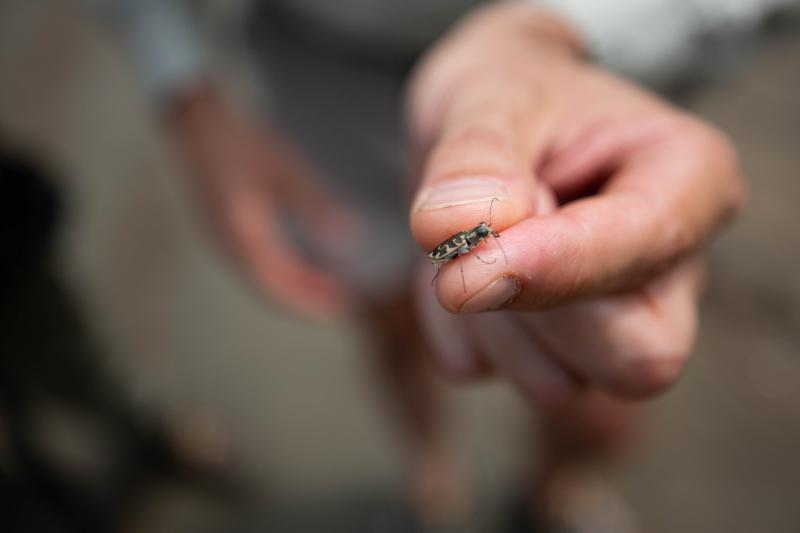
Rodger Gwiazdowski holds up a Puritan tiger beetle found this summer. This incredibly rare insect was spotted at a secret spot along the banks of the Connecticut River. Credit: Patrick Skahill/Connecticut Public Radio
This week:
We search for New England’s most endangered species.
We talk to young climate activists about what motivates them.
Plus, the fight to stop non-organic milk from making it into products labeled organic.
Young Climate Activists Call For Immediate Action
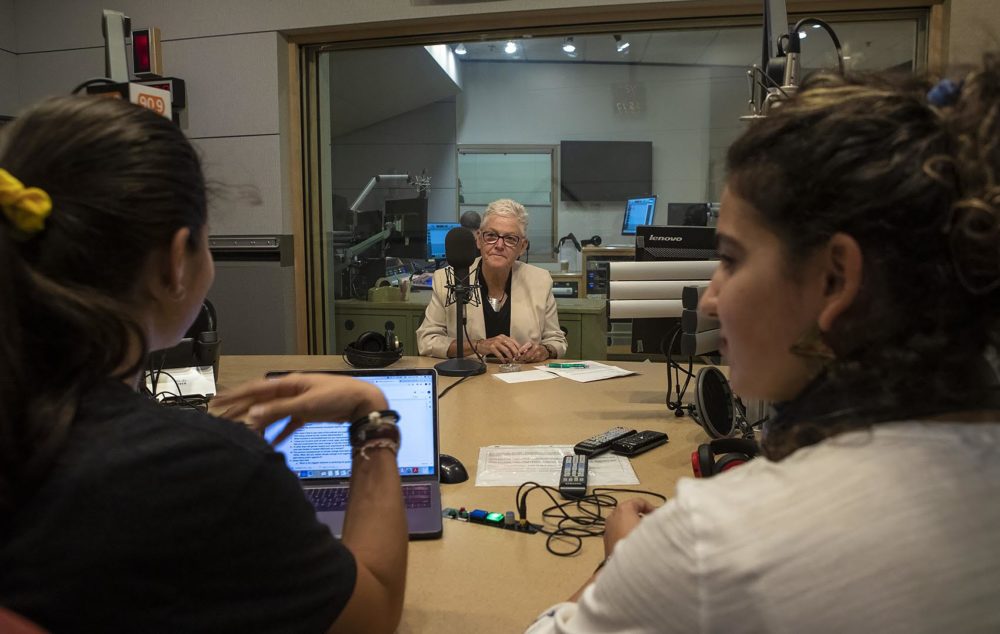
Audrey Lin, left, and Saya Ameli Hajebi speak with the former head of the Environmental Protection Agency Gina McCarthy at the WBUR studios. (Jesse Costa/WBUR)
Over the next two weeks, young climate activists are leading strikes around the world, demanding politicians take action. The strikes are Friday, September 20 and 27, bookending the United Nations climate emergency summit.
While youth climate activism is not a new phenomenon, the dire warnings about inaction give today’s movement a heightened sense of urgency.
Boston’s Gina McCarthy, the former head of the federal environmental protection agency sat down with two young local climate leaders to talk about what drives them – and the challenges they face.
And we heard from a 15-year-old climate activist and organizer Sena Wazer about the changes she’d like to see in Connecticut.
Energy Efficiency Program For Renters Gains Traction
Energy efficiency is one piece of the puzzle when it comes to tackling climate change.
Usually, efficiency programs like are reserved for homeowners, while renters are left paying energy bills that are higher than they’d like. But an innovative system called Pay As You Save or PAYS, created by two Vermonters, is helping renters and people with lower incomes finance energy efficiency upgrades.
Decades in, climate change is finally helping fuel interest in the program.
Is Nuclear Energy Necessary To Combat Climate Change?

The Pilgrim Nuclear Power Station (Robin Lubbock/WBUR)
A dire warning from scientists: we’re running out of time. To avert a global climate catastrophe we must “decarbonize” the world’s economy by mid-century, making deep, dramatic cuts in greenhouse gas emissions.
Clean, renewable energy resources are coming online, but solar and wind are intermittent and the transition will take time. There is another carbon-free energy source that is strong, steady and available, but there’s a catch.
A look at the future of nuclear energy.
These stories are part of “Covering Climate Now,” a week-long, global initiative of more than 250 news outlets.
Searching For One of New England’s Most Endangered Species
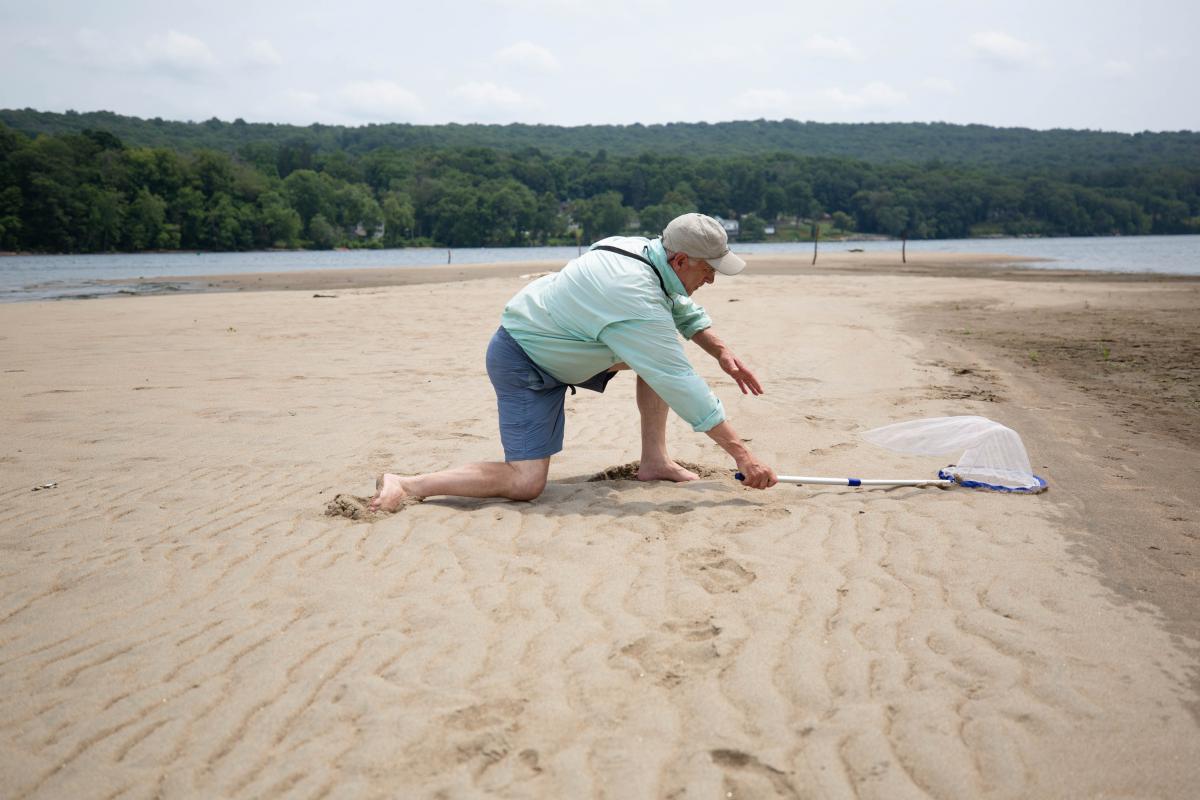
Researcher Chris Davis captures a Puritan tiger beetle on the banks of the Connecticut River. (Patrick Skahill/Connecticut Public Radio)
The Puritan tiger beetle used to be found up and down the Connecticut River, but climate change, dam construction, tidal flooding, and other ecosystem changes have reduced its range to just one small patch of sandy soil; it’s now considered one of the most endangered species in New England.
Researchers are not sure the beetle will survive; its numbers are low and habitat is fragmented, but they’re still trying to save it. Last fall, they planted hundreds of beetle larvae on a few beaches with the hopes of finding adults this year.
Organic Dairy Farmers Push To Keep Non-organic Milk From Their Products
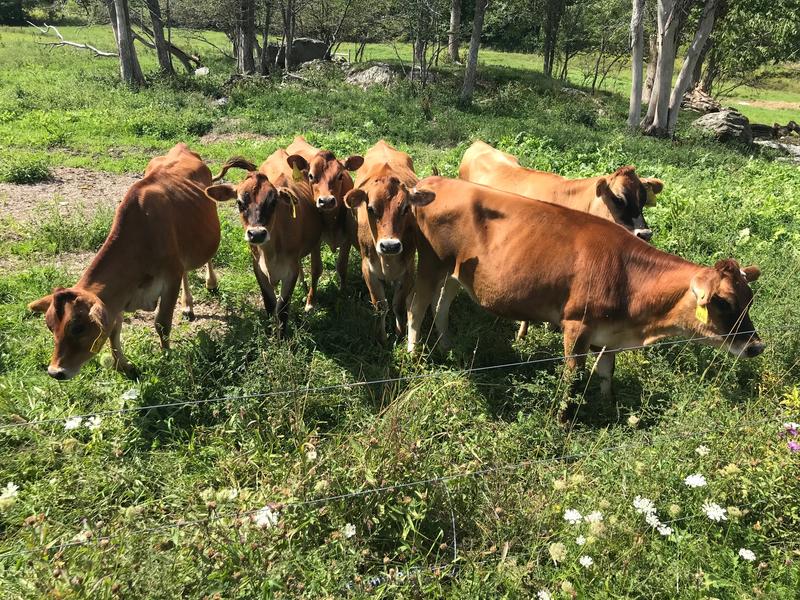
These young Jersey heifers at Stony Pond Farm in Fairfield, Vermont were raised organically from birth, but Vermont farmers say some large operations are exploiting inconsistencies in how organic standards are applied to cut costs. (John Dillon/VPR)
Organic dairy farmers in Vermont say some milk in their market is not actually organic. They say large-scale producers in the West and Midwest skirt the rules and gain an advantage because industry standards are inconsistently enforced.
Hear why the farmers are asking Congress to help to close those regulatory loopholes.
Reviving The Local Grain Economy
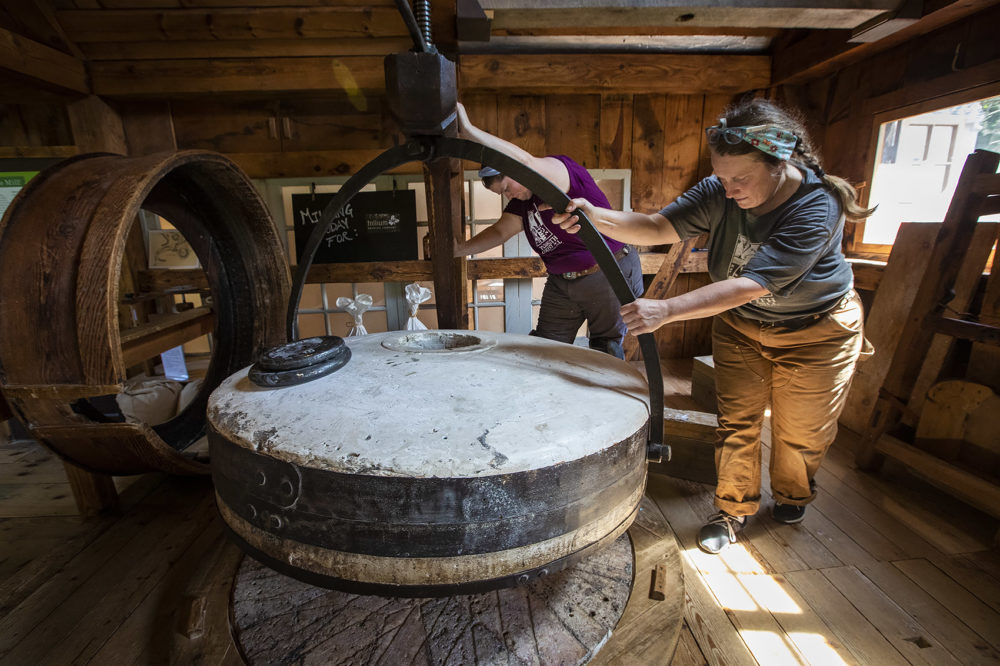
Kim Van Wormer, right, and Sydney Tierney carefully move the 2500 lb mill stone into place. (Jesse Costa/WBUR)
The local food movement has made it easier to find fresh veggies and fruit farmed nearby. But grains? Not so much. Most of the bread New Englanders break is made with flour from industrial, Mid-western farms. That’s changing though.
Learn how farmers, millers, and chefs are rallying to re-invent a lost, regional “grain economy.”
New England’s Famous Pedal Steel Guitarist

Pedal steel guitarist John Widgren. (Kevin Kuhl/Connecticut Public Radio)
We’re going to leave you with a sound that’s a bit more Nashville than New England. John Widgren is one of the most in-demand pedal steel guitarists in Country music, and he lives in Connecticut. Here’s an audio postcard from Connecticut Public Radio’s Diane Orson.
NEXT is produced at Connecticut Public Radio
Host: John Dankosky
Producer: Morgan Springer
Digital Producer: Carlos Mejia
Senior Director: Catie Talarski
Contributors to this episode: Bruce Gellerman, Miriam Wasser, Patrick Skahill, Andrea Shea, John Dillon, Diane Orson, John Kalish, and Lucy Nalpathanchil.
Music: Todd Merrell, “New England” by Goodnight Blue Moon, ……
New to NEXT? You can find every episode or one you missed within our archives.
We need your feedback! Send critiques, suggestions, questions, and ideas to next@ctpublic.org. Help us spread the word! If you like what you hear, rate and review us on iTunes.
